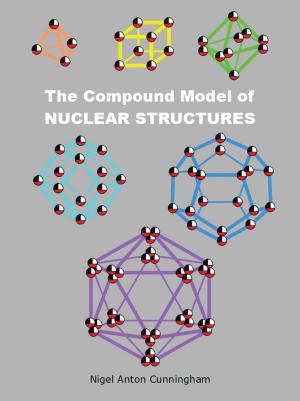Inside the Wright Brothers
Flight Is Possible
Nonfiction, Reference & Language, Transportation, Aviation, Biography & Memoir, Fiction & Literature| Author: | John Passfield | ISBN: | 9781456726119 |
| Publisher: | AuthorHouse | Publication: | November 16, 2006 |
| Imprint: | AuthorHouse | Language: | English |
| Author: | John Passfield |
| ISBN: | 9781456726119 |
| Publisher: | AuthorHouse |
| Publication: | November 16, 2006 |
| Imprint: | AuthorHouse |
| Language: | English |
This novel, presents the Wright Brothers as idealists who build a dream out of the nuts and bolts of their everyday reality. There is a hard core of steel in the Wrights that, however compassionate, polite, accommodating and modest they appear to be to other people, is the straight arrow that allows them to see their life's work clearly, to make every decision and action move towards the achievement of their goal, and to seldom make false judgments or false gestures that would cause them to deviate from their true course. The assurance that guides the brothers is that quality in creative people that allows them to work towards their lifes goal no matter who or what encourages or discourages them, advances them or retards them, promotes them or disparages them. Familiarity with the Wright Brothers story has made the invention of the worlds first airplane seem to have a fairy-tale ambiance which is divorced from the sweat and anxiety of everyday life. This assumption of an effortless invention process is actually a hold-over from the initial response to their accomplishment by the people of the Wright Brothers own time. While suitably impressed with the achievement of the Wright Brothers, the people of the early Century remained unaware of the complex process that the Wright Brothers had actually gone through in order to produce such amazing results. The lack of appreciation of the complexity of the invention process is a result of the pronouncements of "aviation experts" of the time who failed to appreciate the magnitude of the Wright accomplishment for two reasons: an inability to imagine the number and complexity of the challenges that the Wrights had found solutions to, and a desire to limit the Wrights legal hold over their inventions in light of what promised to be a great financial future for the new innovation. In effect, while the public of the early Century marveled at the invention of the airplane, and gave full credit to the Wright Brothers, many "aviation experts"assumed that the Wright Brothers contribution to the invention process had involved nothing more complicated than a little tinkering with the ideas of those who were better qualified by education and by academic eminence to invent the airplane.
This novel, presents the Wright Brothers as idealists who build a dream out of the nuts and bolts of their everyday reality. There is a hard core of steel in the Wrights that, however compassionate, polite, accommodating and modest they appear to be to other people, is the straight arrow that allows them to see their life's work clearly, to make every decision and action move towards the achievement of their goal, and to seldom make false judgments or false gestures that would cause them to deviate from their true course. The assurance that guides the brothers is that quality in creative people that allows them to work towards their lifes goal no matter who or what encourages or discourages them, advances them or retards them, promotes them or disparages them. Familiarity with the Wright Brothers story has made the invention of the worlds first airplane seem to have a fairy-tale ambiance which is divorced from the sweat and anxiety of everyday life. This assumption of an effortless invention process is actually a hold-over from the initial response to their accomplishment by the people of the Wright Brothers own time. While suitably impressed with the achievement of the Wright Brothers, the people of the early Century remained unaware of the complex process that the Wright Brothers had actually gone through in order to produce such amazing results. The lack of appreciation of the complexity of the invention process is a result of the pronouncements of "aviation experts" of the time who failed to appreciate the magnitude of the Wright accomplishment for two reasons: an inability to imagine the number and complexity of the challenges that the Wrights had found solutions to, and a desire to limit the Wrights legal hold over their inventions in light of what promised to be a great financial future for the new innovation. In effect, while the public of the early Century marveled at the invention of the airplane, and gave full credit to the Wright Brothers, many "aviation experts"assumed that the Wright Brothers contribution to the invention process had involved nothing more complicated than a little tinkering with the ideas of those who were better qualified by education and by academic eminence to invent the airplane.















